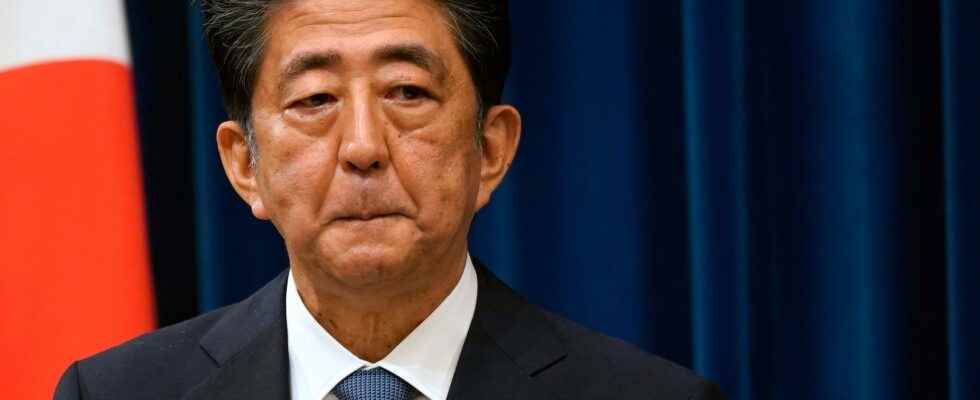Published: Less than 30 minutes ago
Former Japanese Prime Minister Shinzo Abe has been shot dead during a campaign rally in the western Japanese city of Nara. He was the youngest prime minister since World War II and also the longest-serving postman.
In 2006, Shinzo Abe became Japan’s youngest prime minister since World War II. At the age of 52, he symbolized youth and change, at the same time as he grew up in a conservative family in the top political tier with high-ranking politicians on both his mother’s and father’s side.
The Prime Minister’s first year was marred by several scandals and less than a year later he announced his resignation after his party, the Liberal Democratic Party (LDP), lost the by-elections. Later, however, he said that the departure was due to a gastrointestinal disease that could only be treated later with new medication.
The LPD is a conservative nationalist party that has ruled Japan virtually uninterruptedly since World War II.
“Abenomics”
Five years after his resignation, he was re-elected party leader of the LPD, which won a landslide victory, and Shinzo Abe became prime minister once again. This time it lasted much longer.
During the period 2012 to 2020, he implemented extensive economic reforms in the country. After two decades of stagnation and a year after the disaster in Fukushima, Shinzo Abe felt that the country must emerge from the recession and start childbirth. Fiscal policy was called “Abenomics” and involved extensive public investment, reduced policy rates and reduced bureaucracy.
Great efforts were also made to make it easier to work and have children, including criticized taxes to finance childcare.
However, the country’s major economic problems persisted at the end of the 2010s and confidence in the Prime Minister declined. In 2020, he was criticized for reacting slowly and confusedly at the beginning of the pandemic, and in August of the same year, he announced that he would resign for health reasons.
Focused on defense
Shinzo Abe has been a vocal critic of Article 9 of the Japanese Constitution. The supplement was added after the Second World War under the influence of the United States and made it virtually impossible for Japan to have a war-ready military in addition to a smaller defense force. Such, it says in the supplement, can not be had while working for world peace.
In 2015, Article 9 was relaxed by the government and allowed Japan to help the Allies militarily. The change was heavily criticized by China and North Korea and is considered illegal by opposition parties and some residents of Japan. Abe has said in several interviews that his main goal for Japan has been to free himself from the “post-war regime”, the US occupation after World War II, which he and other conservatives believe has weakened the country’s traditional values. At the same time, he has been instrumental in strengthening ties with the United States in an effort to increase Japan’s military capabilities.
More and more nationalistic
In recent years, Japan has become more nationalistic, writes the Foreign Policy Institute (UI). During Abe’s time in power, the country has received harsh criticism for concealing historical war crimes by toning down or erasing textbook passages on the subject, and grades were recently introduced in the subject of “moral education” from an early age. There have also been rules that one must show reverence for the flag and the national anthem, while several parliamentarians openly support nationalist organizations.
In the summer of 2022, the retired Shinzo Abe was out on a campaign tour for the LDP when he was shot to death during a speech in the city of Nara in western Japan. A 41-year-old man from the same city was arrested in connection with the incident. In photos published on Twitter, it looks like the weapon is homemade.
Facts
Shinzo Abe
Shinzo Abe’s grandfather was Prime Minister Nobosuke Kishi, whose brother Eisaku Sato was also in office.
His father and grandfather were both high-ranking members of the Liberal Democratic Party. Shintaro Abe, Shinzo’s father, was a leading candidate for prime minister before being drawn into a recruitment scandal.
Shinzo Abe studied political science at Seikei University in Tokyo in the 1970s and completed his studies in California in 1979.
After graduating, he began working for a steelmaker, which he left in 1982 to pursue a political career.
Read more
